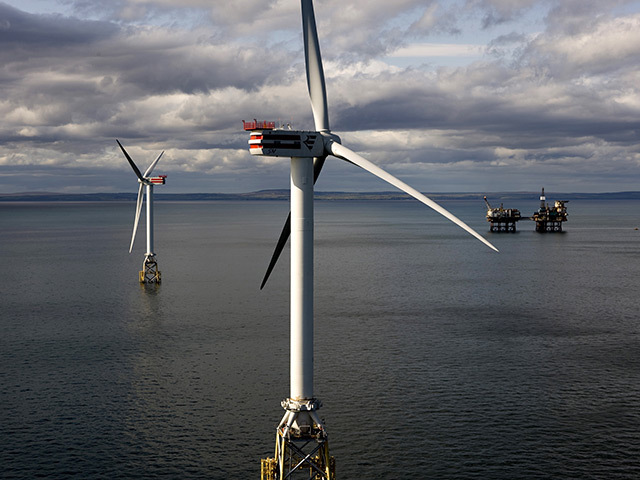
Growing emissions from energy are putting the world on track to see temperature rises of 3.6C, despite a boom in renewables, analysts have warned.
By 2040, energy demand will be 37% higher than it is now, putting pressure on supplies and pushing up greenhouse gas emissions by a fifth, a report by the International Energy Agency (IEA) suggests.
This is despite major growth in renewables, which will account for nearly half of the increase in power generation around the world by 2040 and overtake coal as the leading source of electricity on current trajectories.
To keep temperatures from rising more than 2C on pre-industrial levels, the point at which dangerous impacts of climate change are expected to be felt, it is estimated the world can only emit 1,000 gigatonnes of carbon dioxide after this year.
The IEA warned that on the basis of current and proposed policies, the entire carbon budget will be used up by 2040.
Policies and developments in markets will see the share of fossil fuels fall to just under three-quarters of energy demand, with coal, gas, oil and low-carbon technologies roughly accounting for a quarter each.
But this will not be enough to stem rising energy-related emissions, putting the world on track for long-term temperature rises of 3.6C, the World Energy Outlook from the IEA said.
The failure to transform the energy system quickly enough to put the world on a path consistent with the goal of limiting temperature rises to 2C is a critical “sign of stress” in the energy system, the IEA said.
The organisation said it showed the need for a comprehensive and ambitious global deal to tackle climate change, which it is hoped can be negotiated in Paris next year.
The agency’s executive director Maria van der Hoeven said: “As our global energy system grows and transforms, signs of stress continue to emerge.
“But renewables are expected to go from strength to strength, and it is incredible that we can now see a point where they become the world’s number one source of energy generation.”
The report said that as the share of wind and solar electricity in the world’s power mix increases four-fold, integrating them into the energy mix becomes more challenging.
It also warned there was a challenge to fill the hole in electricity generation caused by retiring 200 nuclear reactors around the world by 2040.
Energy security concerns are on the rise, with oil supplies increasingly reliant on a small number of producers, while the use of coal will be constrained by action to cut emissions and tackle the air pollution coal-fired power plants cause.
Demand for oil and coal are expected to plateau by 2040, though demand for gas will grow by more than half.
Energy efficiency is critical to tackling the problems faced by the world’s energy systems, but subsidies for fossil fuels were 550 billion US dollars (£350 billion) last year, four times the amount for renewables and holding back investment in both renewables and energy efficiency, the IEA report said.
Recommended for you
